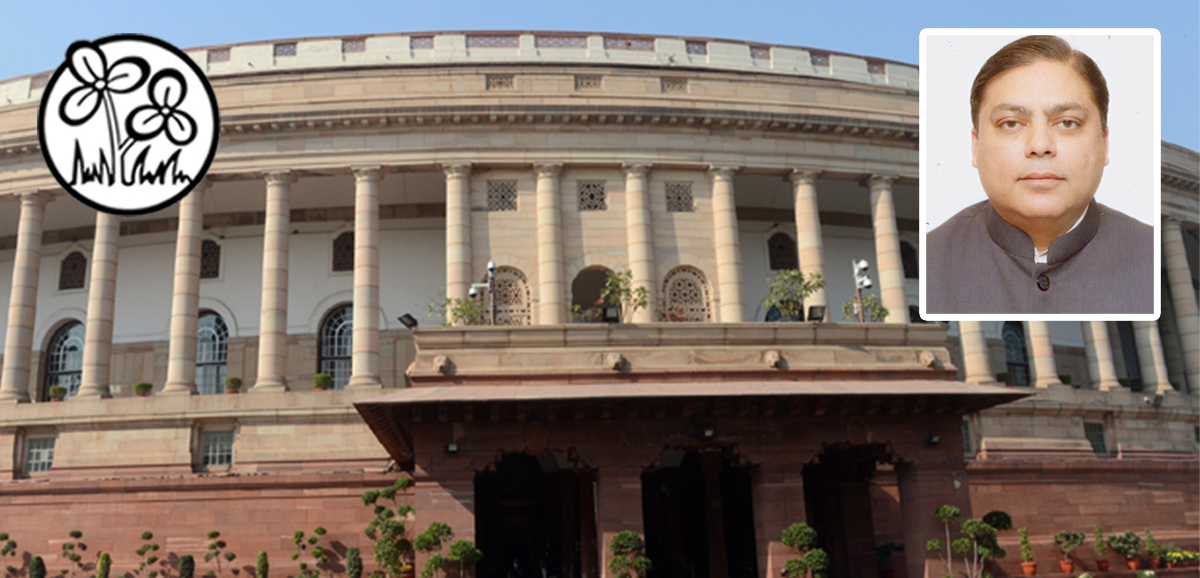December 2, 2021
Md Nadimul Haque speaks on The Dam Safety Bill, 2019

FULL TRANSCRIPT
Thank you, Deputy Chairman Sir, for giving me this opportunity to speak on the Bill. I would like to take this opportunity to point out a few problematic provisions in The Dam Safety Bill, 2019 that need to be brought to the attention of all those concerned.
Based on data available from the National Register of Large Dams, 2019, there are 5,344 large dams in the country. Of these, 293 dams are over 100 years old and 1,041 are between 50 and 100 years old. While this does necessitate urgent measures to ensure the safe functioning of these river valley projects, the peculiar way in which The Dam Safety Bill, 2019 has been framed needs serious scrutiny.
The Bill provides for surveillance, inspection, operation and maintenance of all specified dams in the country. Specified dams are those which satisfy a few structural criteria. It calls for the establishment of two bodies at national and state levels to formulate and execute policies, resolve conflicts between states and so on within their respective jurisdictions. The Central Water Commission has noted that the functioning of Dam Safety Organisations in various states is sub-par and needs urgent intervention. However, the Dam Safety Bill in its current form is replete with many contentious clauses, namely:Firstly, subjects such as water supply, irrigation and canals, embankments, water storage and hydropower fall under the State List in the Constitution, as per Entry 17. The Central Government, as per Entry 56, can legislate on subjects such as inter-state rivers and river valleys only if such legislation has been declared to be in the public interest. This poses a problem, as 92 per cent of all specified dams in the country involve more than one State. If the Central Government were to legislate on such a subject, it would be a clear encroachment of States’ sovereignty and hence unconstitutional.
The predecessor of the 2019 Bill, The Dam Safety Bill, 2010 was introduced in the parliament under Article 252. This article allows the parliament to make laws on subjects in the State List if two or more states pass resolutions demanding the passage of such a law. A law so made would only be applicable to those States. Any other State that chooses to adopt the law may do so my passing resolutions. In this case, the two states concerned were Bengal and Andhra Pradesh, which passed laws requiring dam safety in 2007.
The Dam Safety Bill, 2010 had hence come through a constitutional provision and had given the States the power to manage their dams and enact laws on dam safety. The current Bill, on the other hand, does not guarantee any such powers to the States. It is yet another legislation that seeks to snatch away constitutionally guaranteed power of the States.
Ever since the inception of this draconian regime, we have seen how the States’ rights have been trampled upon. The Union Government has been constantly legislating on subjects outside its legal jurisdiction, as was seen in the case of the recently repealed Farm Laws, for instance. In the case of subjects that fall under the Concurrent List, most decisions have been taken unilaterally by the Central Government, with no consultations whatsoever.
Secondly, the provision to have a representative of the Central Water Commission as a member of the NCDS (the regulatory body) would mean that CWC will function as both an advisor and regulator, which is impermissible under the Constitution, according to the Supreme Court.
Thirdly, the financial memorandum of this Bill states that Rs 47 crore will be spent to set up the authorities and structure. It is completely silent on the flow of funds to States. This effectively means that the States will have to pay, while the Centre will merely give directions.
Next, the National Committee of Dam Safety is to have a 21-member committee: A chairperson and 10 people, nominated by the Central Government, seven people from the States, also nominated by the Central Government and three experts, again nominated by the Central Government. So, all 21 are to be nominated by the Central Government. This is a classic case of infringement of States’ autonomy. Every single State in which a large dam exists should have full freedom to nominate the members to the committee.
Finally, the provision in the Bill that allows core functions of the National and State-level bodies to be amended through government notification may also not be legally admissible.
The Dam Safety Bill, 2019 is, without a doubt, unconstitutional and clearly yet another attempt to encroach upon the sovereignty of States and violate the principles of federalism.
Hence, I urge the Minister to take these rather crucial points into consideration, address the inadequacies in the Bill and ensure that it does not violate constitutional principles before going any further with it.
We endorse the other Honourable Member’s view of sending the Bill to a Select Committee since it is such a contentious Bill. It needs to be studied further before it can be brought to the House.
Thank you, Sir.
